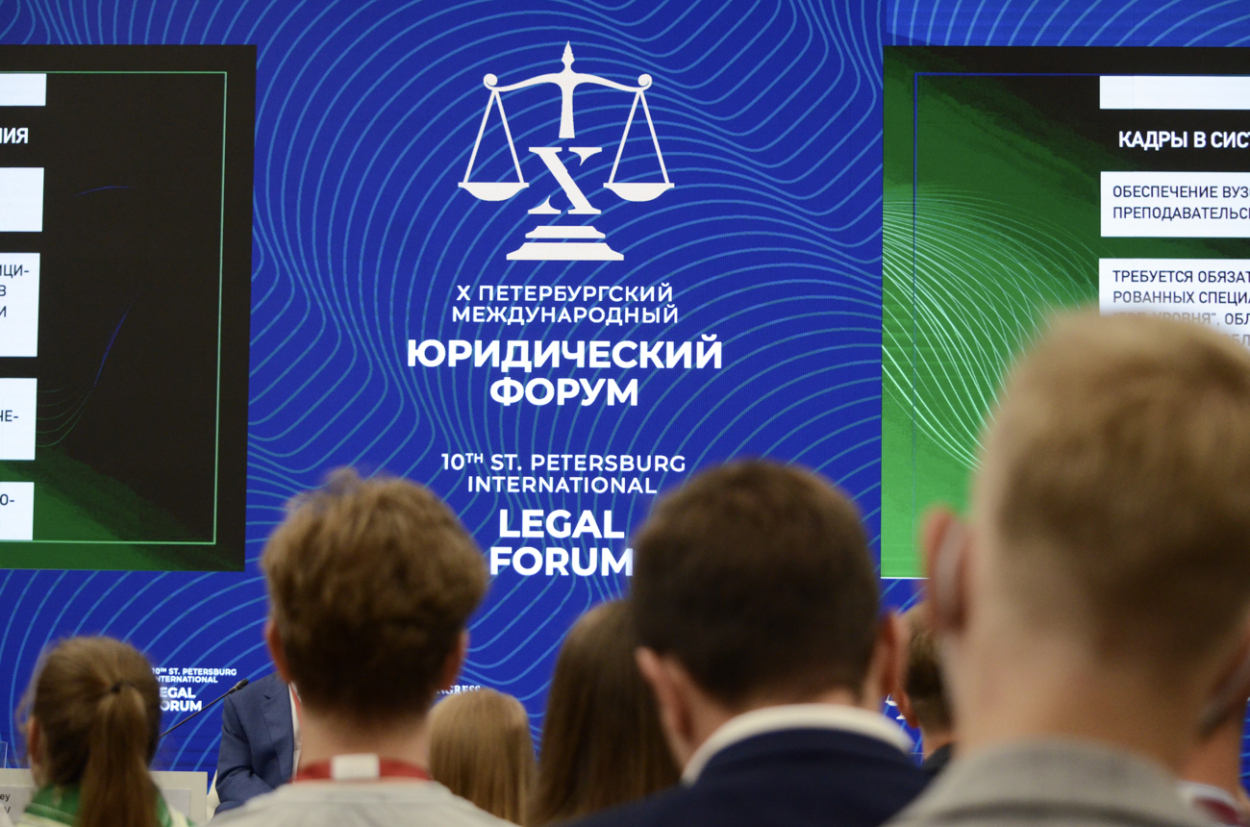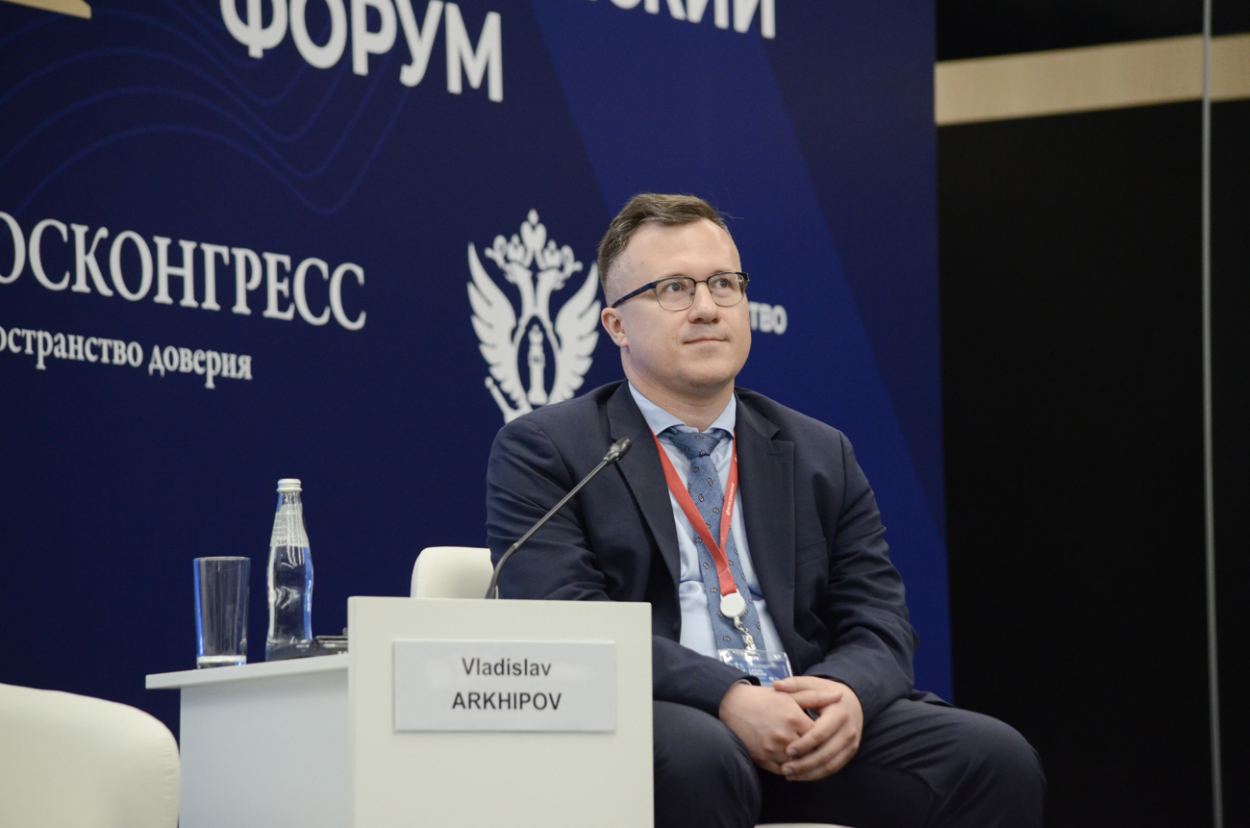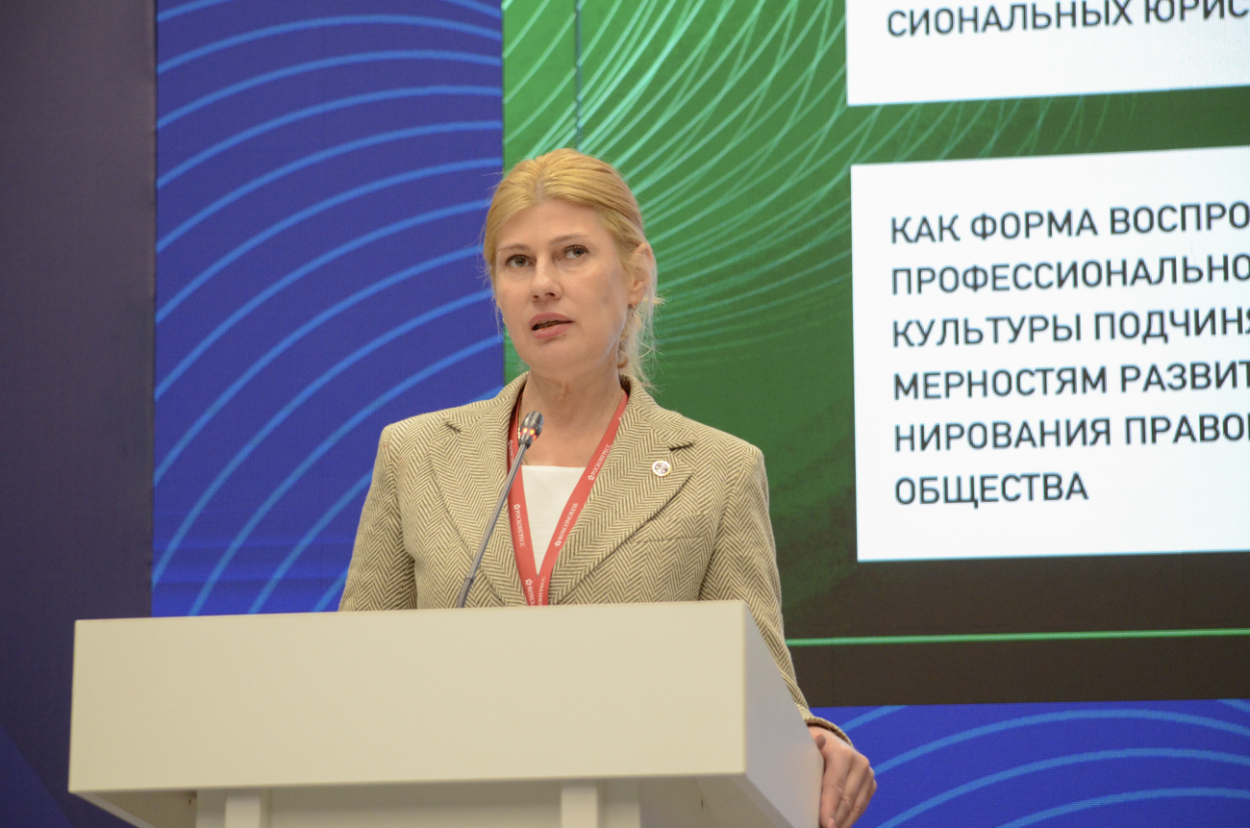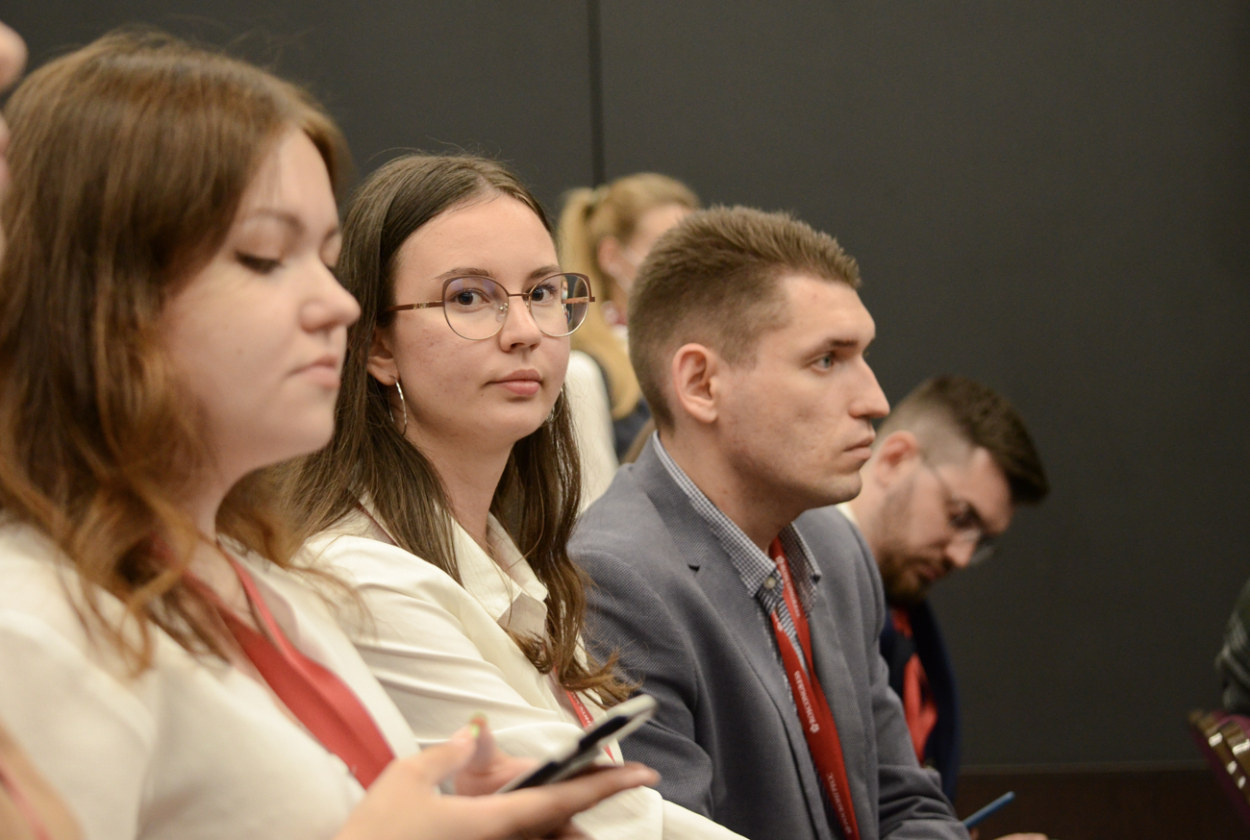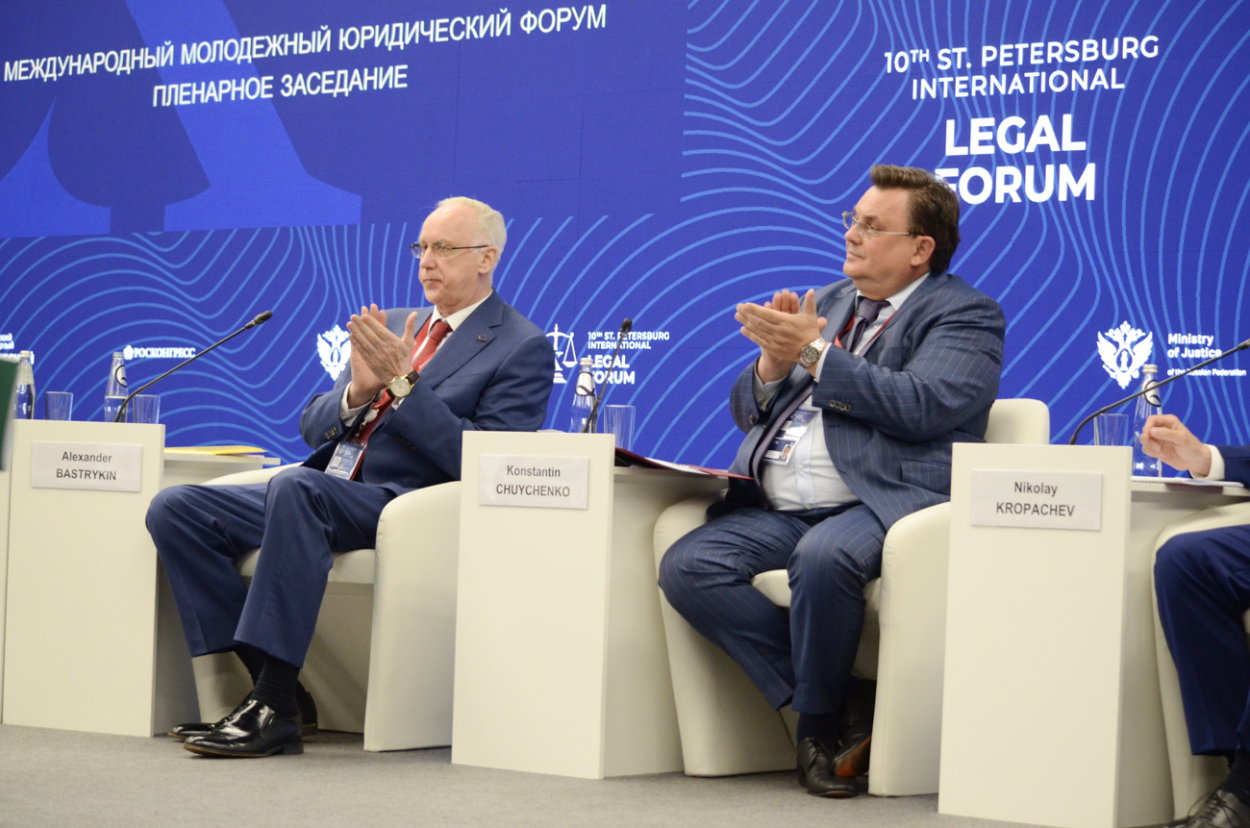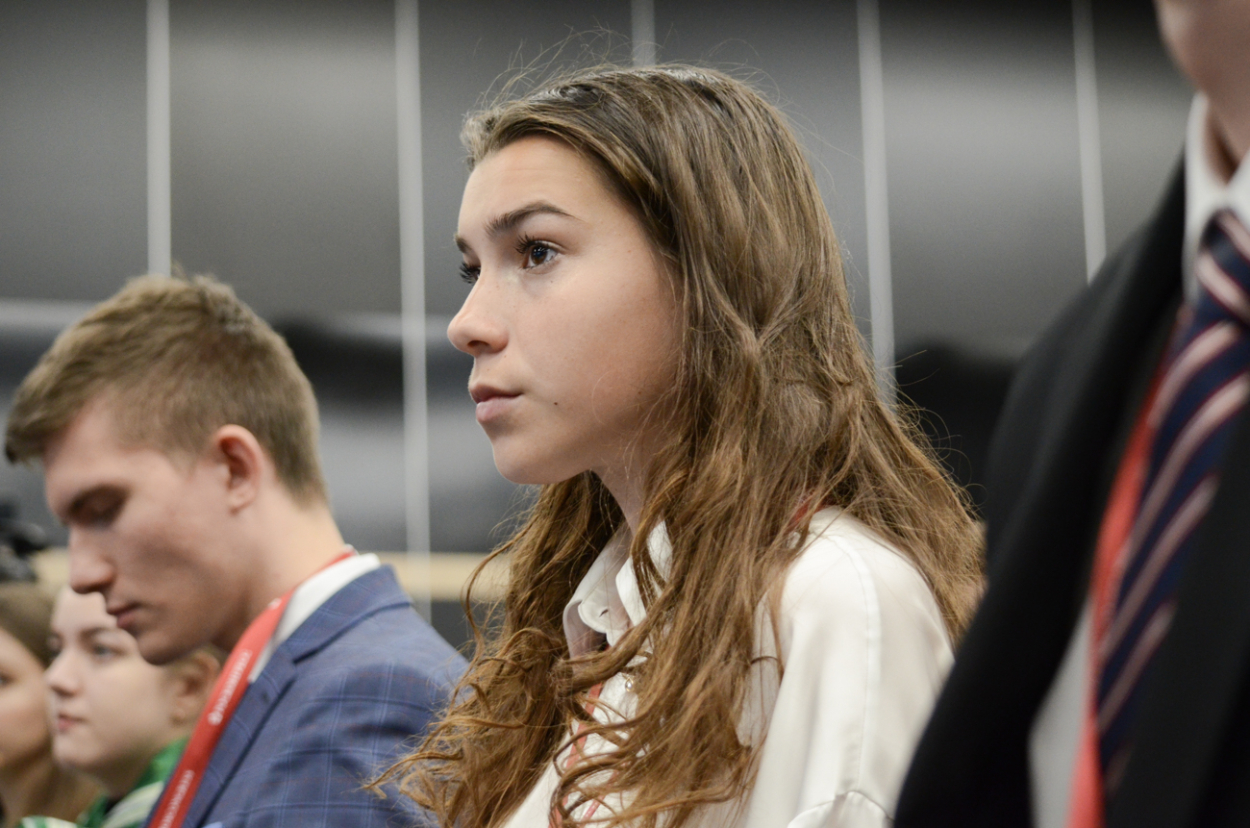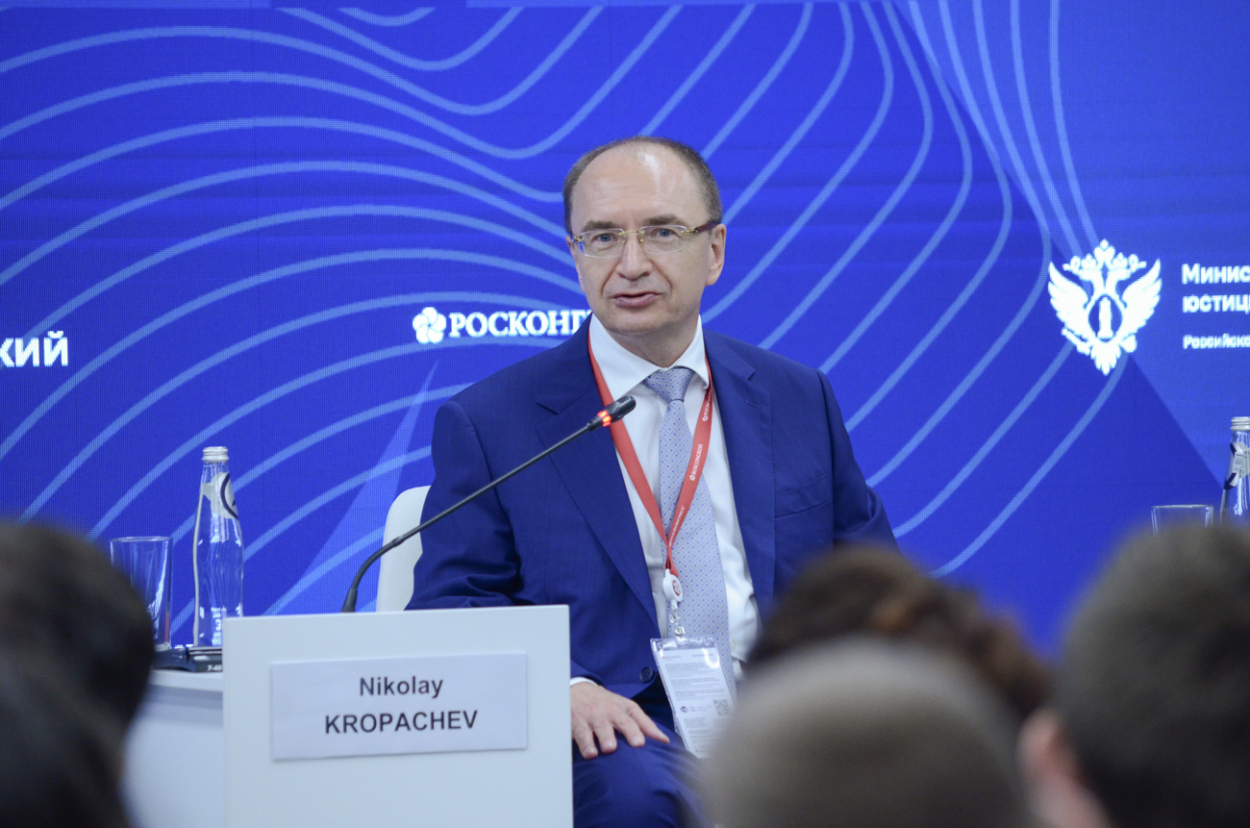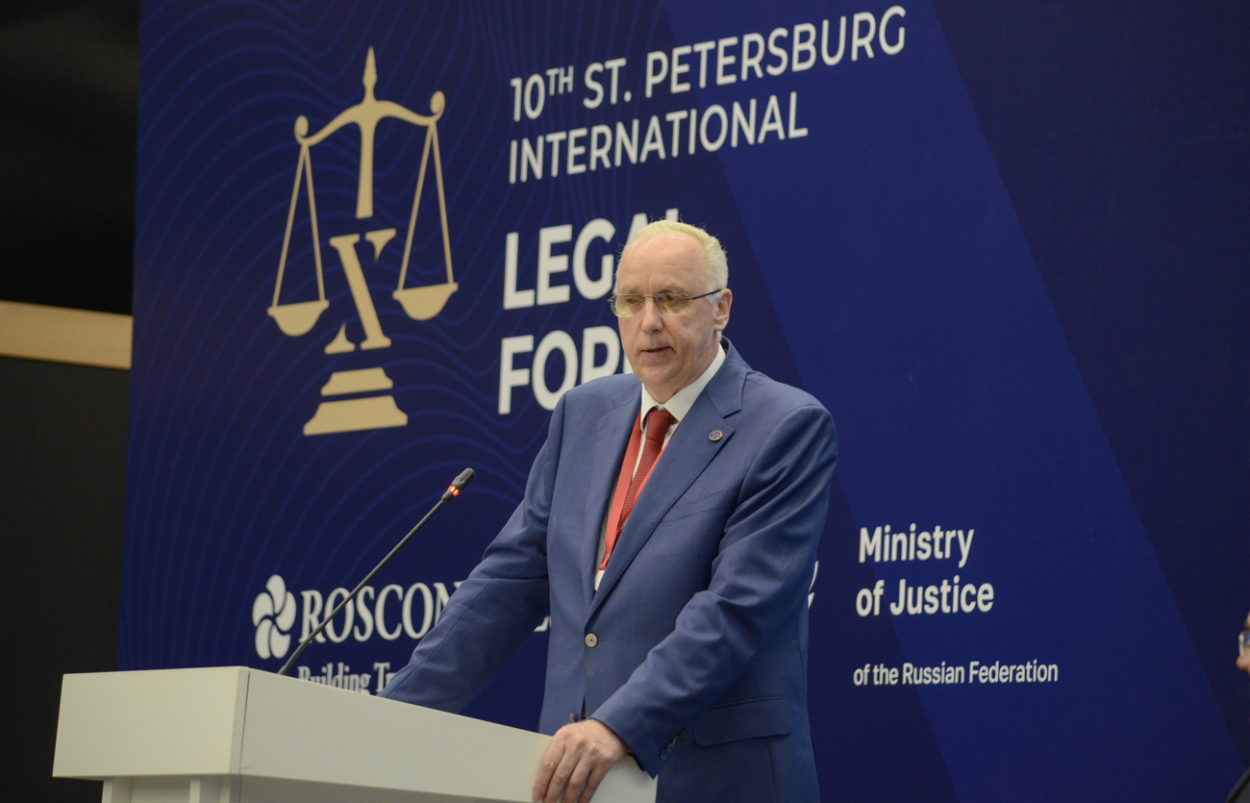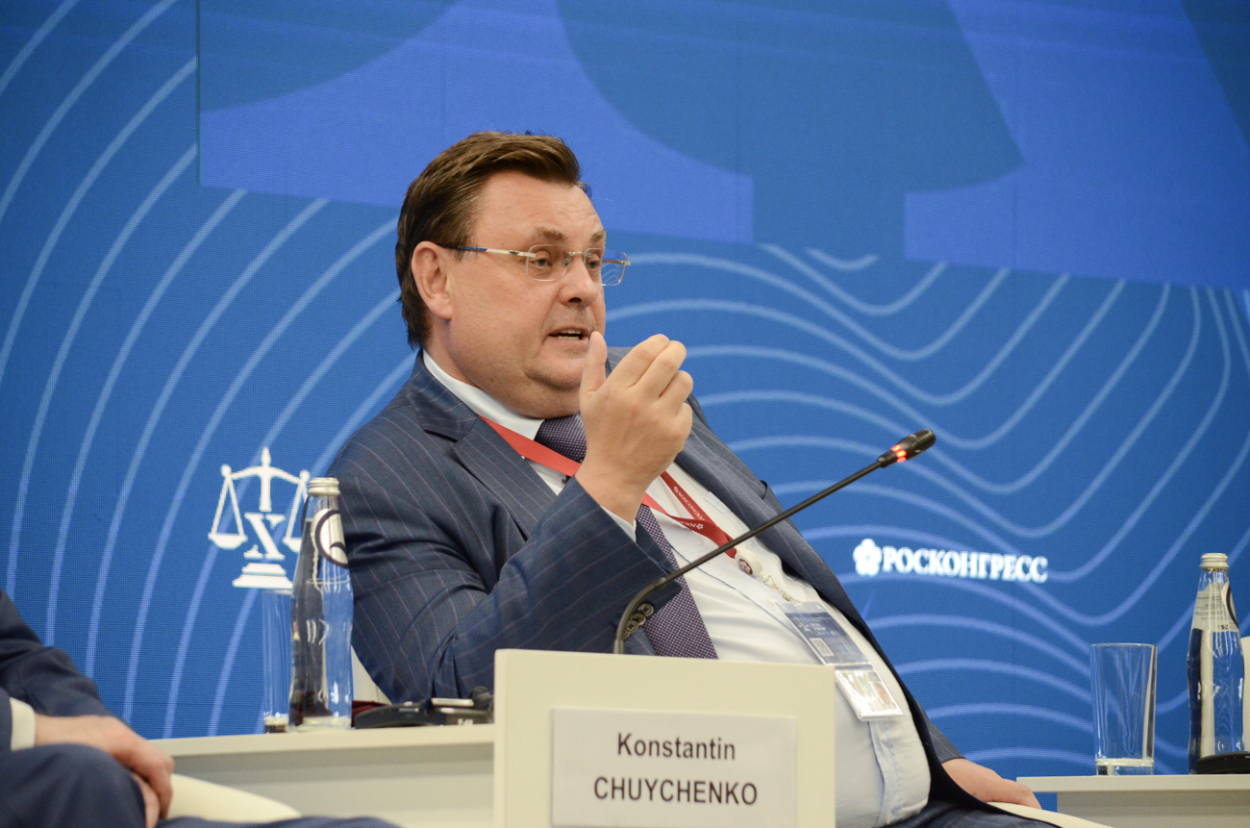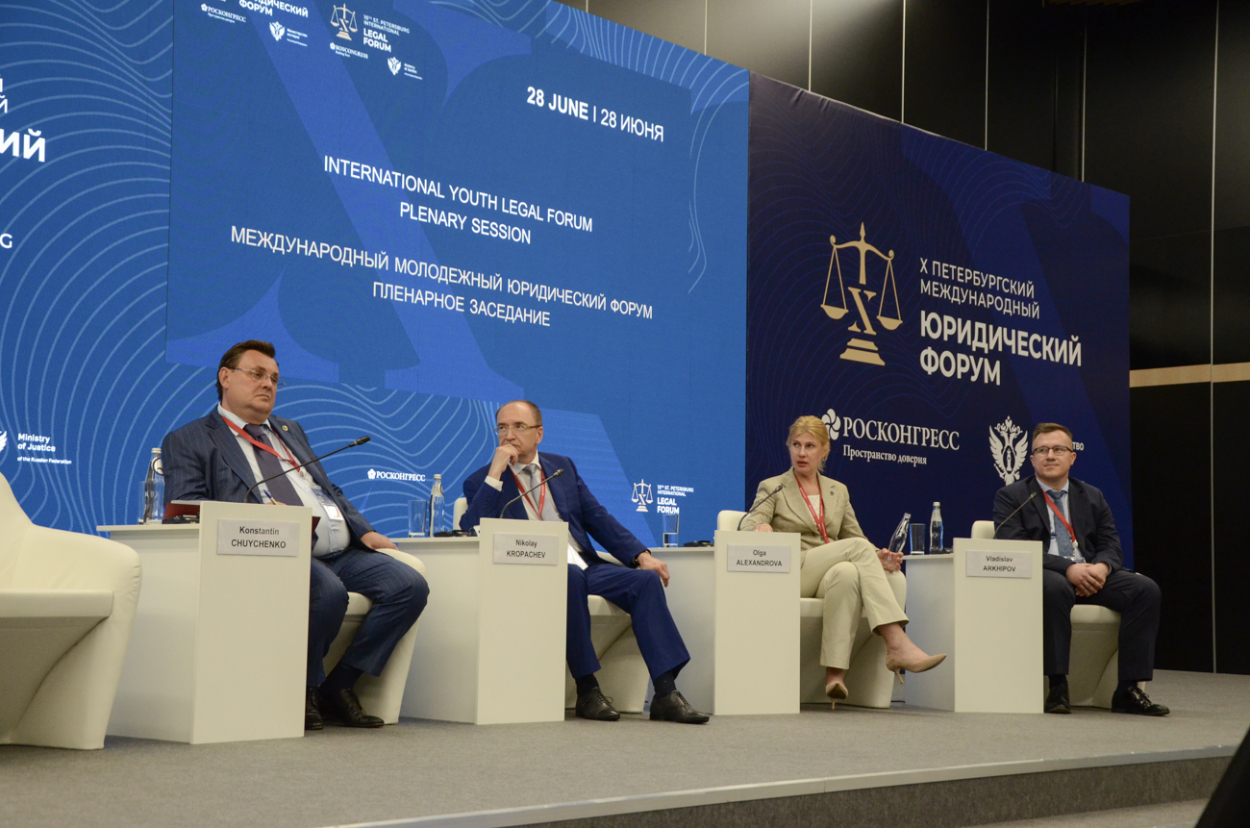The Youth Legal Forum, being a year older than the "big" Forum, becomes the "day zero" of the St Petersburg International Legal Forum
St Petersburg has hosted the International Youth Legal Forum as part of the large St Petersburg International Legal Forum programme. Students, graduates, young practitioners and academics met with representatives of government, science and business there and discussed the latest trends in Russian and international law. The event was traditionally organised by St Petersburg University.
The main topic of this year’s plenary session of the Forum was the transformation of higher education. The participants assessed how reforms of the 1990s and 2000s affected the system of higher professional education, including law schools. According to experts, they used to happen spontaneously, rather than being the result of a deliberate policy.
Konstantin Chuychenko, Minister of Justice of the Russian Federation, noted that the transformations of that time did not benefit the quality of education. For example, in the 1990s, they led to the emergence of an excessive number of private and non-core law schools in Russia, whose graduates were not in demand. The Minister proposed establishing a ranking of law schools in Russia in order to help applicants to choose the right university for their education.
The Minister also noted the need for new academic programmes focusing on narrow legal fields and for expanding the network of legal clinics at universities. ’With the amendments to the Federal Law "On Free Legal Aid in the Russian Federation", students who have completed at least half of their legal training course in law will be able to participate in the provision of legal aid at the clinics. It is a clear opportunity to put into practice the theoretical knowledge and skills acquired during the training and at the same time to increase the effectiveness of the provision of free legal aid to citizens,’ said Konstantin Chuychenko.
The Legal Clinic of St Petersburg University was established in 1998. Under the supervision of experienced faculty members, students provide assistance to those citizens who cannot pay for legal services: people with disabilities, pensioners, orphans, large families, and students.
The Minister also stressed the importance of the traditions of national higher education that must not be forgotten today. He recalled his years of study at Leningrad State University (now St Petersburg University), noting that it was not just knowledge that he received at the University, but a real university education that encouraged thinking, reasoning and independent decision-making.
Alexander Bastrykin, Chairman of the Investigative Committee of the Russian Federation, emphasised the fundamental nature of Russian science and education and that it is important today not to look at the Western system but to revive the national system: ’I believe that we should look back at the roots of Russian education, at its traditions.’
Nikolay Kropachev, Corresponding Member of the Russian Academy of Sciences and Rector of St Petersburg University, observed that in order to improve the overall level of education in the country, it is necessary to establish clear and comprehensible rules regarding access to public property of institutes and universities including equipment, halls of residence, sports facilities, libraries and online courses financed from the budget. This will ensure equal opportunities for all Russian students and, in effect, safeguard their constitutional right to a quality education without additional funding.
Sergei Belov, Dean of the Faculty of Law of St Petersburg University, noted that the International Youth Legal Forum is a year older than the "big" Legal Forum. At the same time, it was a satellite event until this year. Now, it has become an integral part of the St Petersburg International Legal Forum, its "day zero".
Nikolay Kropachev also observed that four years should be sufficient for a strong university to train a good lawyer. For example, graduates of bachelor’s programmes in law at St Petersburg University successfully find employment immediately after completing their studies at the University.
Summing up the discussion, Sergei Belov, Dean of the Faculty of Law of St Petersburg University, noted that the integration of traditions of strong law schools and today’s trends is the key to a successful future of the legal profession.
The plenary session was also attended by Olga Aleksandrova, Rector of the All-Russian State University of Justice, and Vladislav Arkhipov, Head of the Department of Theory and History of State and Law of St Petersburg University.


